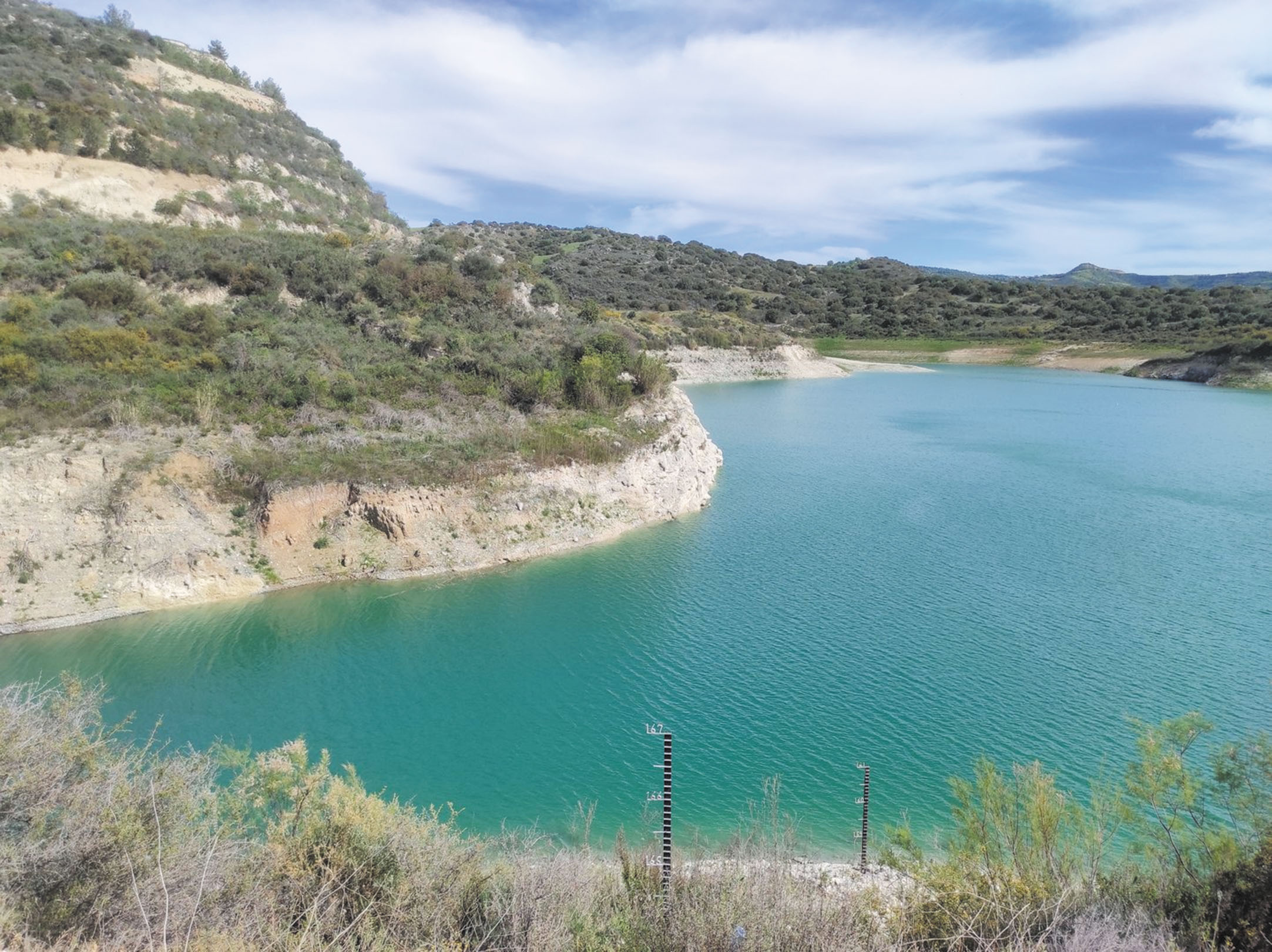An “ambitious but absolutely necessary” plan to ensure every household and every sector has the water it needs was presented on Wednesday by Agriculture Minister Maria Panayiotou, who said reservoirs were still just a quarter full this year.
“The shortage of water is one of the greatest challenges Cyprus is currently facing and the plan aspires to contribute to the sustainability of water resources, enhance water security and reduce the dependence on the weather,” Panayiotou said.
The plan was prepared by the Water Development Department in cooperation with other departments and ministries and adds to the actions already being implemented over the past decades to address the water shortage, Panayiotou said.
Panayiotou said that over the years 108 dams have been built, of which 56 are large, while two more are being constructed. The total capacity of Cyprus’ reservoirs is 330 million cubic metres. These numbers, she added, bring Cyprus to the first place in Europe in relation to its population.
Cyprus also has five water refining plants with a daily capacity of 215,000 cubic metres of dam water made potable.
Out of the five desalination plants producing 235,000 cubic metres of water per day, Cyprus now has four, following the weekend fire that put the Paphos one out of action. Panayiotou said efforts were already underway to restore and reopen the plant.
There are also nine main sewerage processing plants turning urban sewerage into irrigation water.
Panayiotou said “the climate crisis has intensified the challenges” and that the cycles of water shortage were becoming shorter.
She explained that, although up till 2000 Cyprus saw intense droughts every 15 to 20 years, over the past two decades they have become more frequent.
The hydrological year 2023-2024 was the eighth driest of the past 50 years. Reservoirs are now at 25.4 per cent of their capacity, compared to 46 per cent last year.
Panayiotou said the new action plan aimed at fully covering needs for households and agriculture, improving water management and the reliability of infrastructure, and using renewable energy sources at desalination plants.
The programme includes 28 actions for increased volume of drinking water and water for irrigation, lower dependence on weather conditions, less wasting of water, reuse of reclaimed water, long-term planning and proper pricing.
Immediate actions, with a budget of €66.4 million, include four mobile desalination plants with a total capacity of 30,000 cubic metres per day and the potential to reach 40,000 cubic metres per day. These plants will gradually operate as of October 2025 and are expected to solve serious problems in the districts of Limassol and Paphos.
Other immediate actions are connecting communities with the grid before next summer as many of their wells have dried up, using wells in Larnaca district for irrigation, temporarily increasing the production of the desalination plant in Dhekelia by 7,000 cubic metres per day.
Awareness campaigns will also be launched with TV spots, visits to schools and educational events.
Medium-term actions include studies and projects to be completed within two to five years, such as revising the water and pricing policies, the use of dam water, reducing the loss of water through the pipeline network and promoting private desalination.
In the long-term, the ministry aims to upgrade existing and construct new desalination plants, promote smart irrigation systems and extend the agricultural coverage from reclaimed water.
Panayiotou also referred to the MED9 agricultural ministers’ meeting in Cyprus in September, which focused on the shortage of water in the primary sector.
“We are determined to work hard to attain the goals we have set and to win the battle against the shortage of water. However, saving water is not just the responsibility of the state. It is everyone’s responsibility. That is why cultivating water awareness is of vital importance,” Panayiotou said.







Click here to change your cookie preferences